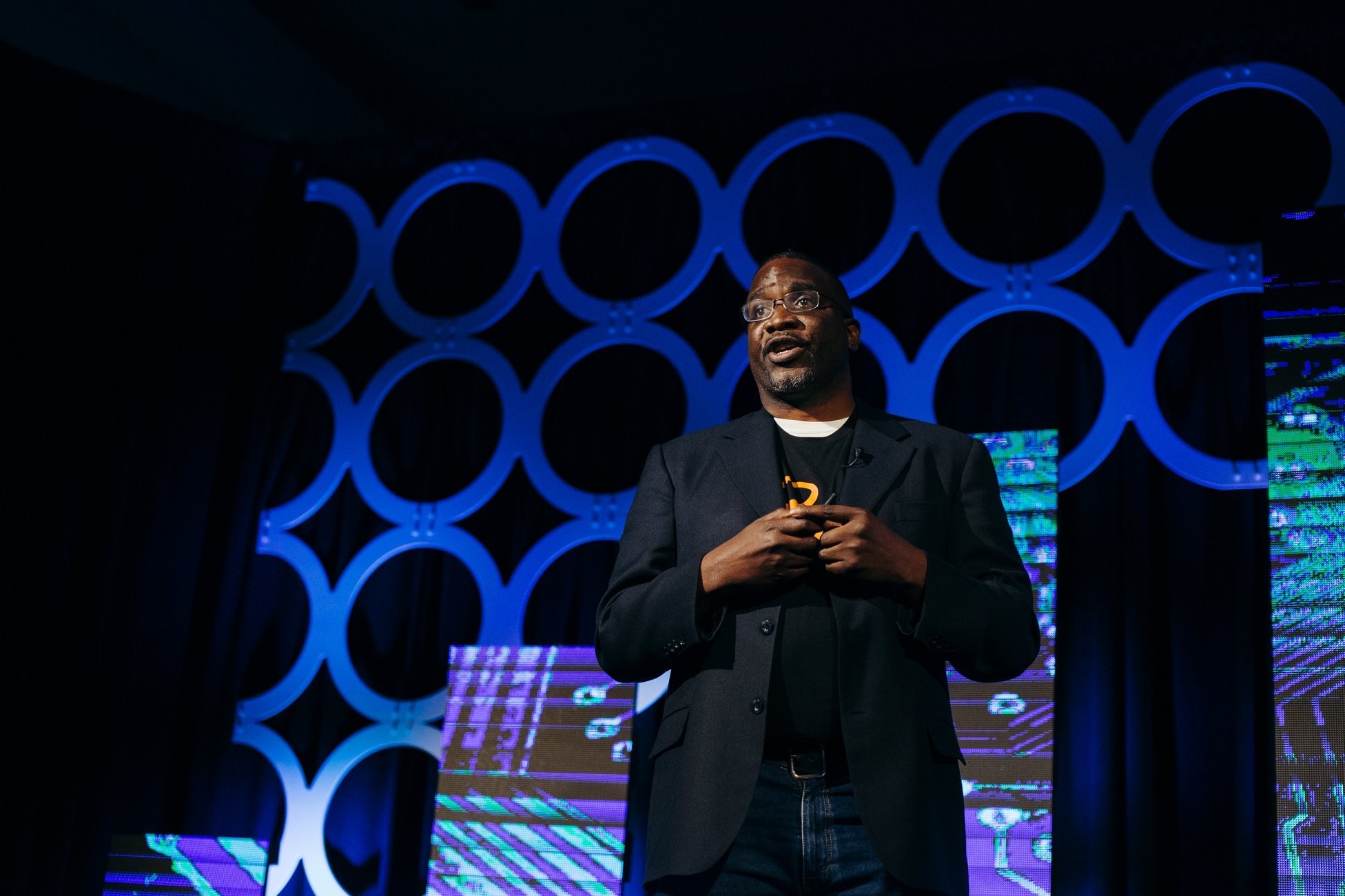Monique Flemings made the biggest risk of her life while experiencing homelessness.
To understand how she got there, it helps to first know that she’d started working at age 14, earned a bilingual literacy degree at Metro State University in her hometown of Denver, and originally wanted to be an English as a Second Language teacher. Low pay deterred her from entering the field, so she took a job in insurance. Over the course of many years, she moved from owning her own salon and an entertainment company into 17 years of nonprofit work. She struggled to be paid her worth, eventually taking a job as a field tech rep for ADT Security Services for a stable wage.
One of her last gigs in the nonprofit arena was as a transition coordinator for an agency in Denver that assisted Medicaid recipients in moving from nursing or long-term-care facilities to independent or community-living. She decided that was something she’d like to continue doing with her own company.
So, in 2013 at age 43, she’d had enough, and “fired my boss,” making a conscious decision to go without work so she could spend the time necessary to create her own job. “I knew if I stayed in a corporate job full time, there’d be no time to get my own business off the ground,” a dream she had during those corporate years, she says. She went through a divorce, became homeless, couch-surfed and moved her family in with her mother for a time.
Her mom moved to Colorado Springs in 2017 and she followed, still in need of housing assistance. Upon arriving here to pursue her entrepreneurial dream, a friend recommended she reach out to the Pikes Peak Small Business Development Center. She did, and in August of that year, she earned a grant to attend an eight-week Leading Edge™ strategic business planning course with SBDC Facilitator Mark Bittle.
“The SBDC gave me the blueprint,” she says. “It gave me confidence in what I was doing. I didn’t have two words on paper when I walked in, but within the first couple months after taking their class, I had my first federal grant money in-hand. That class was pivotal.” She also took advantage of later business consulting with tax, legal and technical advisors via the SBDC.
Flemings is now the Executive Director of All Hands On Deck (AHOD) transition services, which took on its first two clients in October 2017. Flemings’ family loaned her money to front those initial clients (as there’s a delay in grant reimbursement from the State) and her mom assisted with providing services. By 2018 she was able to hire her first life-skills trainer, and today she’s at seven employees, despite the pandemic setbacks. AHOD currently assists clients annually across the Springs, Pueblo, Denver, and Teller and Jefferson counties. Flemings is also aiming to create offices in the coming year in Atlanta, Georgia and Dallas, Texas, where she cites a dearth in services.
The process begins for clients via an expressed desire for independent living; care facilities then coordinate through counselors at the State level, then Medicaid sends referrals to transition-assistance agencies like AHOD. They then assist in setting up housing (with dedicated Section 8 vouchers), organizing skilled home health care checkups, setting up medical equipment, assisting with transportation needs and arranging life skills training and peer mentorship. “We get them as self-sufficient as possible inside of the allotted year,” she says, noting they go above and beyond in assisting with emergencies and more, voluntarily. “I still see clients who we helped move three years ago,” she says.
AHOD creates a positive net impact at the state level. Flemings cites a cost to the government of around $7,000 a month to provide long-term facility care to a person, while independent living situations can lower that cost to around $4,800 monthly. “Between 2016 and 2019 the State saved $4.8 million,” she says. Still, a lot of education is needed to ensure patients know their options, and she’s concerned that cycles of institutionalized homelessness persist. “People have major medical events every day… Covid showed us how hospitals aren’t always prepared for big numbers … people end up staying even after they’re healthier because they have nowhere to go… facilities shouldn’t be fearing lost revenue with unoccupied beds… we can keep people moving back into independent living and get them back on their feet until the next time they require services.”
She notes potential for better care in community-based settings, as AHOD can address underlying health conditions with expanded services, whereas care facilities are sometimes limited in addressing only what a person is admitted for. Plus, clients just need “someone to hold their hand and communicate” on their behalf: basic advocacy and facilitation.
“People don’t realize they can live independently again … when we walk into a facility to move them, you should see their faces — it’s like Santa arriving on Christmas morning.”






